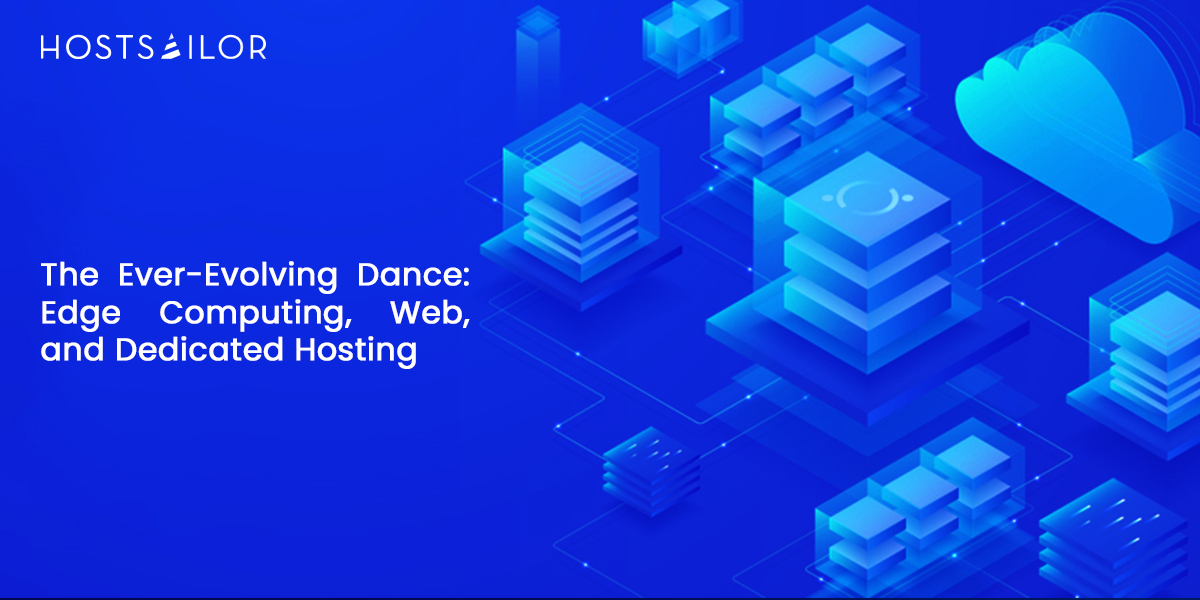
The digital landscape is in a constant state of flux, driven by an insatiable demand for faster, more responsive, and geographically dispersed user experiences. At the forefront of this evolution lies edge computing, a paradigm shift that is fundamentally redefining how web content is delivered and hosted.

In this intricate dance, web hosting, particularly dedicated hosting, plays a crucial role in supporting and enabling the transformative power of edge computing.
Demystifying Edge Computing
Edge computing decentralizes traditional cloud-based processing by distributing it to the edges of the network, closer to end users. This geographically distributed approach brings computational resources – data storage, processing power, and content delivery – closer to the point of interaction. The benefits are compelling:
- Reduced latency: By eliminating the need for data to travel long distances to centralized servers, edge computing significantly reduces latency, resulting in faster loading times and a more seamless user experience. This is particularly critical for real-time applications like online gaming, video conferencing, and augmented reality.
- Enhanced security: Edge computing can improve security by processing and storing sensitive data locally, minimizing the risks associated with data breaches and unauthorized access.
- Improved scalability and reliability: By distributing workloads across multiple edge nodes, edge computing offers greater scalability and resilience. This redundancy ensures that even if individual nodes experience outages, the overall service remains unaffected.
- Reduced bandwidth consumption: By processing data closer to the source, edge computing minimizes the amount of data that needs to travel across the network, leading to reduced bandwidth consumption and potentially lower costs.
Web Hosting: The Foundation for Edge Deployment
Web hosting, the backbone of the internet, plays a vital role in the successful implementation of edge computing. Dedicated hosting, in particular, offers several advantages for edge deployments:
- Dedicated resources: Unlike shared hosting, where multiple websites share resources on a single server, dedicated hosting provides exclusive access to an entire server. This ensures consistent performance and complete control over the environment, crucial for the demanding requirements of edge computing.
- Security: Dedicated servers offer a more secure environment compared to shared hosting, as there’s no risk of resource allocation conflicts or security vulnerabilities from other websites. This is essential for edge deployments handling sensitive data.
- Customization: Dedicated hosting allows for greater customization and configuration, enabling users to tailor the server environment to the specific needs of their edge applications. This flexibility is critical for optimizing performance and efficiency within the edge ecosystem.
The Collaborative Power: Unleashing the Potential
The synergy between edge computing and dedicated hosting unlocks a range of exciting possibilities:
- Content Delivery Networks (CDNs) on the Edge: CDNs can leverage edge nodes to deliver content geographically closer to users, further reducing latency and improving user experience. This is particularly beneficial for streaming services, e-commerce platforms, and websites with a global audience.
- IoT and Smart Devices: Edge computing can enable real-time processing and analysis of data generated by Internet of Things (IoT) devices and smart devices located at the network’s edge. This facilitates faster decision-making, improved automation, and enhanced operational efficiency in various industries, from manufacturing and logistics to healthcare and smart cities.
- Offline Functionality: Edge computing can empower applications to function with limited or even no internet connectivity. By storing and processing data locally, edge-enabled applications can continue to operate even when the central server is unavailable, ensuring uninterrupted service and a more robust user experience.
However, the integration of edge computing and dedicated hosting also presents certain challenges:
- Increased complexity: Managing a distributed network of edge nodes alongside dedicated servers can be more complex compared to traditional centralized hosting models. Robust orchestration and automation tools are crucial for efficient management.
- Security concerns: Securing a geographically dispersed network of edge nodes requires careful consideration and implementation of robust security measures to mitigate potential vulnerabilities.
- Standardization: The lack of standardized protocols and APIs for edge computing can create challenges in interoperability and integration across different vendors and platforms.
Beyond the Basics: Exploring Advanced Use Cases
While the aforementioned applications showcase the transformative potential of edge computing and dedicated hosting, the possibilities extend far beyond:
- Augmented Reality (AR) and Virtual Reality (VR): Edge computing can play a critical role in enabling seamless AR and VR experiences by reducing latency and ensuring smooth data processing at the user’s location. This is essential for applications like remote surgery, training simulations, and immersive entertainment.
- Autonomous Vehicles: The success of self-driving cars hinges on real-time decision-making and low-latency communication. Edge computing, in conjunction with dedicated hosting, can facilitate the processing of sensor data and vehicle interactions at the edge, enabling faster reaction times and improved safety.
- Personalized Content Delivery: By leveraging user data and location information collected at the edge, content delivery platforms can personalize content in real time, offering a more relevant and engaging experience for individual users.
Embracing the Future: Collaborative Innovation
As the landscape of edge computing and dedicated hosting continues to evolve, collaboration and innovation will be key to unlocking its full potential. Here are some key areas where progress can be expected:
- Standardization: Establishing industry-wide standards for protocols, APIs, and security practices will streamline integration and foster a more robust and interoperable ecosystem.
- Security Enhancements: Continuous development and implementation of advanced security solutions are crucial for safeguarding sensitive data and mitigating vulnerabilities across the distributed edge network.
- Management and Orchestration: Advancements in automation and orchestration tools will simplify the management of complex edge deployments, enabling efficient scaling and resource allocation.
In conclusion, the convergence of edge computing and dedicated hosting represents a significant leap forward in shaping the future of the internet.
By harnessing the combined strengths of these technologies, we can pave the way for a more responsive, secure, and geographically distributed digital landscape, ultimately enhancing user experiences and driving innovation across various industries.